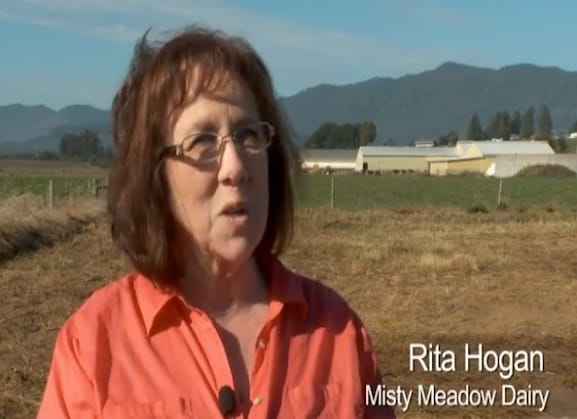Your Smart Energy enrollment helps fund projects that reduce or prevent the release of greenhouse gas.
Smart Energy renewable natural gas projects
Smart Energy has purchased renewable thermal certificates (RTCs) from a landfill in Utah that captures and refines the emissions from decomposing food waste. RTCs are retired on participants’ behalf.
Renewable natural gas is derived from biogas, which is produced from decomposing organic waste from landfills, agricultural and forestry waste and wastewater from treatment facilities, that has been captured and cleaned for the pipeline.
For every dekatherm (10 therms) of renewable natural gas produced and used at qualifying facilities, an RTC is created. An RTC represents the environmental attributes of the generation and use of the dekatherm of renewable natural gas, similar to renewable energy certificates for wind and solar electricity generation. RTCs are currently tracked, validated and retired via the independent nonprofit Midwest Renewable Energy Tracking System (M-RETS), which ensures the validity and integrity of RTC creation and retirement. For more information on RTCs, please visit the M-RETS Renewable Thermal Tracking System Website.
Smart Energy carbon offset projects
Bear Creek Watershed
Bear Creek Watershed - Astoria, OR
By extending the time between timber rotation, this Forest Stewardship Council-certified watershed forest sequesters atmospheric carbon and helps provide clean drinking water.
B6 Dairy
B6 Dairy - Gooding, ID
Captured methane from the anaerobic digestion of manure at this family farm generates about 1 million kilowatt-hours of renewable electricity every month.
Castelanelli Brothers Dairy
Castelanelli Brothers Dairy - Lodi, CA
This family-owned dairy uses captured methane from diverted manure to generate renewable electricity for the farm.
Cedar Grove Composting Everett
Cedar Grove Composting Everett
Cedar Grove Composting is a family-owned business that collects approximately 150,000 tons of yard and food waste per year through the Everett Project. This yard and food waste is collected from King and Snohomish counties. In two closed aerobic composting systems, Cedar Grove helps to avoid the release of methane from the waste, which in turn reduces greenhouse gas emissions.
Davis Landfill
Davis Landfill - Layton, UT
Captured methane is piped to Hill Airforce Base, where it is used to generate renewable electricity.
Farm Power Lynden
Farm Power Lynden - Lynden, WA
Captured methane from an anaerobic digester was used to generate renewable electricity. The resulting heat waste heated commercial greenhouses.
Farm Power Misty Meadow
Farm Power Misty Meadow - Tillamook, OR
This family-owned dairy diverts manure from a 14-million-gallon lagoon to a 1-million-gallon anaerobic digester, where captured methane is used to generate renewable electricity.
Farm Power Rexville
Farm Power Rexville - Mt. Vernon, WA
The digester sits between two dairies and generates electricity with the captured methane from manure and municipal food waste.
Farm Power Tillamook
Farm Power Tillamook - Tillamook, OR
Farm Power pipes the waste from four neighboring Oregon dairy farms to a single anaerobic digester. Methane emitted by the manure is captured and used to generate renewable electricity.
Great Bear
Great Bear Forest Carbon Projects
The old-growth forests of the Great Bear Rainforest in British Columbia are among the most carbon-dense ecosystems globally, storing more carbon per hectare than many of the world’s tropical rainforests. Through the Great Bear Forest Carbon Projects, Coastal First Nations conserve these carbon stocks and reduce greenhouse gas emissions by implementing improved forest management practices, including reducing commercial harvesting and stewarding ecologically and culturally significant areas.
Lochmead Farms
Lochmead Farms - Junction City, OR
This family-owned dairy turned waste from about 1,100 cows into renewable electricity.
Moses Lake
Moses Lake - Moses Lake, WA
This ENERGY STAR®-rated facility diverts organic waste and potato trim from lagoons to an anaerobic digester. Captured methane is used on-site as a source of renewable natural gas.
Oak Lea Dairy
Oak Lea Dairy - Aumsville, OR
This small family-owned dairy uses captured methane to generate renewable electricity—enough to power about 300 homes in Oregon each year.
Roseburg LFG
Roseburg LFG Energy - Roseburg, OR
This project captures methane emitted from the Roseburg Landfill municipal waste facility. The captured methane is then refined and sent to a 1.6-megawatt energy plant to generate renewable energy.
Shaan Seet
Shaan Seet Improved Forest Management Project - Prince of Wales Island, AK
This project sequesters atmospheric carbon by preventing commercial timber harvesting activities from occurring on this 8,891 acre area of old-growth forest. Owned by Shaan Seet Inc., an Alaska Native Claims Settlement Corporation that provides economic development for the community of Craig (Shaan da) on the west side Prince of Wales Island, this project will also improve wildlife habitat, protect biodiversity, and protect water quality for local fisheries.
TMF Biofuels
TMF Biofuels - Boardman, OR
Captured methane from co-digested organic waste and cow manure generates about 4.8 million megawatts of renewable electricity annually.
Trans-Jordan Landfill
Trans-Jordan Landfill - South Jordan, UT
The Trans-Jordan Landfill is a methane-capture project that produces electricity from garbage. As described on their website, waste is dumped in lined beds at the landfill, then covered to collect the methane released as food and organic materials break down. Pipes then pump the released methane into electrical generators that use the biogas as fuel.
Van Warmerdam Dairy
Van Warmerdam Dairy - Galt, CA
Manure from roughly 1,400 cows power a 600 kilowatt-capacity generator, which produces peaking power for Sacramento Municipal Utility District.
Whiteside Dairy
Whiteside Dairy - Rupert, ID
Captured methane heated farm buildings and generated renewable electricity.
Winston Creek
Winston Creek Forest Carbon Project - Lewis County, WA
This project sequesters carbon by extending the rotation time between timber harvests on a 10,088-acre plot of commercial forest. Made up primarily of Douglas fir, the project protects valuable habitat for local wildlife, including the spotted owl and marbled murrelet.

Rita Hogan
Misty Meadow Dairy
How we select carbon offset projects for Smart Energy
We contract with third-party organizations to procure verified carbon offsets on behalf of Smart Energy. Smart Energy has retired carbon offsets on the public registries of several voluntary carbon offset programs. These programs have developed standards for quantifying and verifying GHG emissions reduction projects, overseeing independent third-party verification bodies, minimizing the risk of invalid creation or double counting of Climate Reserve Tonnes (CRTs), issuing carbon credits generated from such projects and tracking the credits over time. Recognized standards from these programs help ensure environmental integrity.
American Carbon Registry (ACR)
Verified Carbon Standard (VCS)
BC Registry
All Smart Energy carbon offset projects meet quality standards and ensure environmental integrity. Projects must:
- Ensure greenhouse gas emission reductions are in addition to business-as-usual activities.
- Apply quantification protocols that generate a conservative volume of emission reductions.
- Be monitored and third-party verified.
We also prefer Smart Energy projects that contribute to sustainable development goals, such as protecting water quality and creating jobs.
Carbon offset project selection criteria
Verified offsets
NW Natural criteria
Carbon offset criteria
